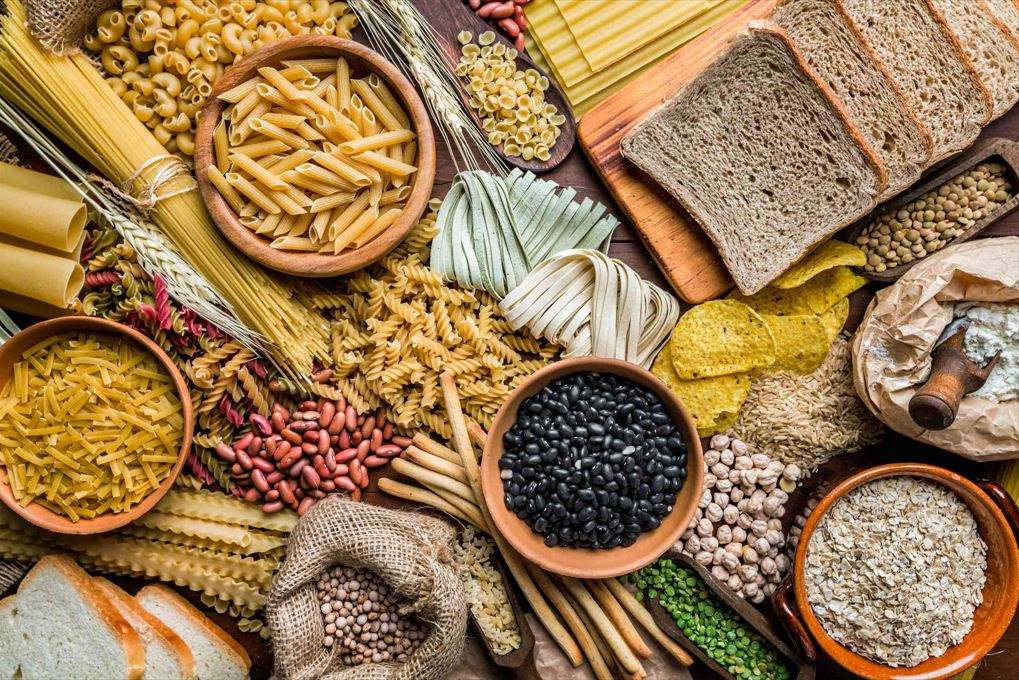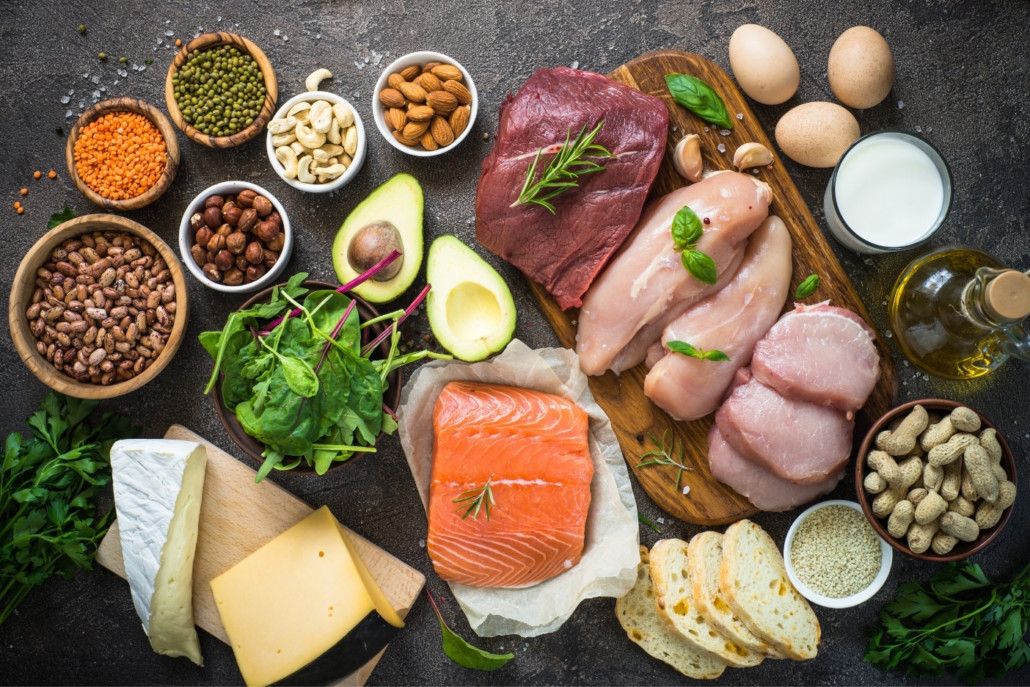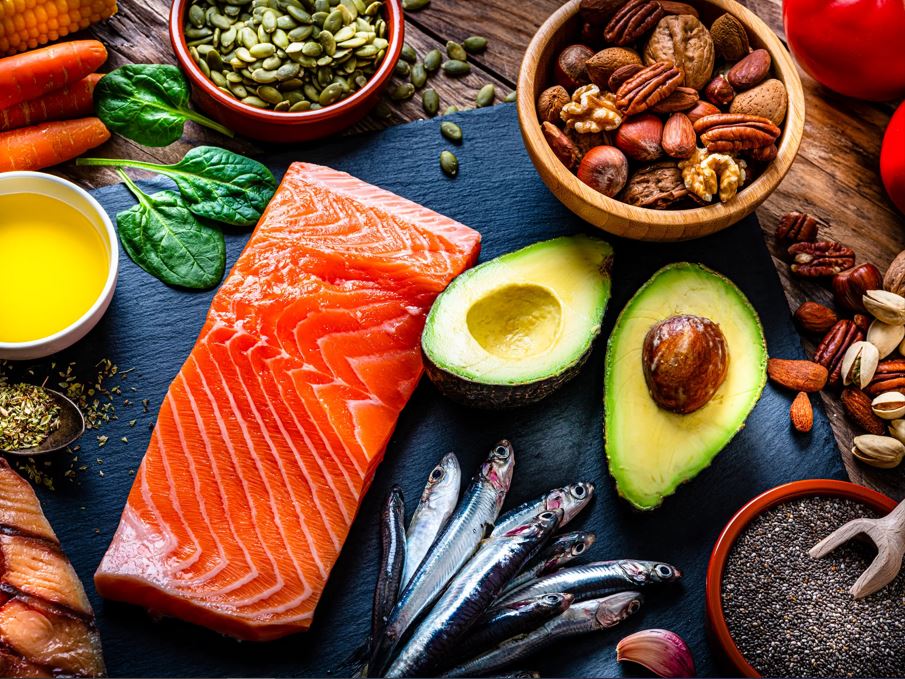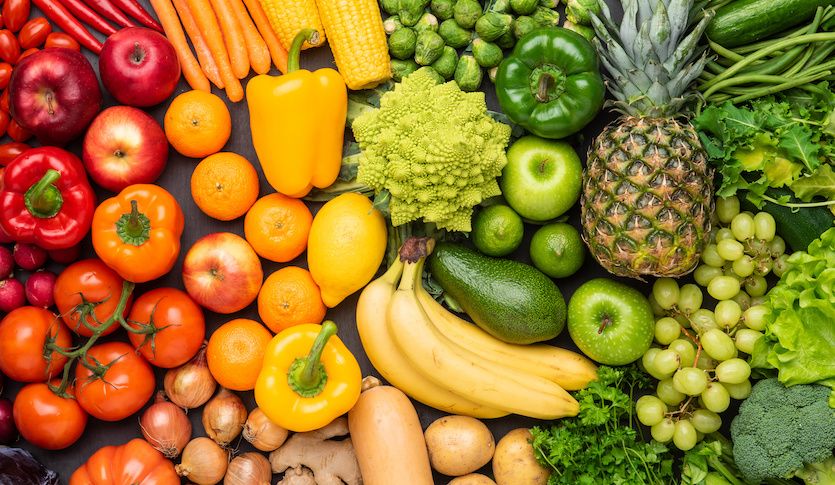The four food groups that are always present in our daily meals are carbohydrates, proteins, fats, vitamins, and minerals. This article will discuss the importance of supplementing these four nutritional food groups and explore their impacts on our bodies.
Carbohydrates (generally starch)
Carbohydrates are an important nutritional component in our diet. Foods containing carbs are often seen as the main source of energy for the body. For example, in Asia, rice is the primary staple food, while in Europe, various grains such as wheat and barley are consumed throughout the year.

1. Types of carbohydrate-containing foods
Carbohydrates come in three main forms, found in the following food sources:
-
Starch: rice, bread, potatoes, barley, oats, etc.
-
Sugar: fruits, sweets, soft drinks, etc.
-
Fiber: fruits, vegetables, whole grains, etc.
2. Why do we need to supplement carbohydrates?
When carbohydrate-rich foods enter our bodies, they are converted into glucose, a form of "fuel" that the brain, muscles, and cells in our bodies need. Without sufficient carbohydrate intake, we won't provide enough energy to sustain daily activities. Additionally, physical performance can decline as a result.
3. Is consuming too many carbohydrates harmful?
It can be harmful if you:
-
Lack control over the amount of carbs you consume
-
Regularly consume simple carbs found in processed foods (burgers, French fries, candy, soft drinks, etc.)
This can lead to rapid weight gain and, more importantly, cardiovascular-related diseases. The advice is to focus on consuming beneficial complex carbohydrate sources like whole grains, vegetables, and fruits.
Read more: What is Carbohydrate? How to read carbohydrates on food packaging?
Protein
Protein is one of the four food groups. Proteins are organic compounds made up of amino acids and play a crucial role in building and repairing muscles. They also contribute to the regeneration of other structures in the body.

1. Types of protein-containing foods
There are two main types of protein: animal protein and plant protein.
-
Animal protein: chicken, beef, fish, eggs, milk, dairy products, etc.
-
Plant protein: legumes, grains, seeds, nuts, etc.
2. Why do we need to supplement protein?
Adequate protein intake ensures maintaining robust health every day. For those who are following an exercise regimen or aiming to build muscle, protein-rich foods or nutritional products are valuable allies. Even when trying to gain weight, maintain weight, or recover from exercise-related injuries, protein is indispensable.
3. Is consuming too much protein harmful?
Consuming excessive protein is not harmful if you have a balanced and scientifically sound diet. However, exceeding the body's protein requirements can strain the digestive system and increase the risk of kidney diseases.
Soumaki advises choosing high-quality protein sources and maintaining a balanced ratio with the other food groups.
Read more: What is protein? How to have a healthy protein-rich meal
Fat (or lipid)
Fat is a type of nutrient that provides high energy, the highest among the nutrient groups. Fat is divided into three main types:
-
Saturated fat: commonly found in animal sources such as animal fat, cream, milk, etc.
-
Unsaturated fat: commonly found in vegetable oils such as olive oil, sunflower oil, various nuts and seeds, etc.
-
Trans fat: commonly found in fast foods (fried and packaged foods, etc.)

1. Foods containing good fats
Include good fats in your daily diet and limit the consumption of bad fats.
-
Good fats: olive oil, sunflower oil, fish oil, plant-based oils, various nuts (flaxseed, chia seeds, etc.)
-
Bad fats: animal fat, cream, butter, bread, biscuits, processed foods, etc.
2. Why do we need to supplement fat?
Fat provides energy and helps the body absorb important vitamins such as vitamins A, D, E, and K. Additionally, good fats play a crucial role in the development and function of the brain, nervous system, and heart. Adequate fat intake can help maintain cardiovascular health, reduce the risk of heart disease, and ensure optimal body function.
3. Is consuming a lot of fat harmful?
Consuming excessive amounts of fat, especially saturated and trans fats, can lead to weight gain, increased risk of cardiovascular disease, diabetes, and lipid disorders.
However, not all fats are harmful. Unsaturated fats are considered good fats and have many health benefits. They help enhance brain function, support the absorption of essential vitamins and nutrients, and contribute to maintaining healthy skin and hair.
Vitamins and minerals
Although the human body only requires small to trace amounts of vitamins and minerals, their absence can severely impact our health.
There are two main types of vitamins:
-
Water-soluble vitamins: including vitamin C and the B-vitamin group (B1, B2, B3, B5, B6, B7, B9, B12)
-
Fat-soluble vitamins: including vitamins A, D, E, and K
Minerals, although not absorbed by the body, still play a vital role in maintaining daily energy. There are various important minerals such as calcium, iron, zinc, magnesium, potassium, sodium, and iodine.

1. Foods containing vitamins and minerals
Food sources rich in vitamins and minerals include green leafy vegetables, fruits, fish, meat, legumes/seeds, milk and dairy products, etc.
2. Why do we need to supplement vitamins and minerals?
These micronutrients ensure the normal functioning of the immune system, tissue formation, and energy metabolism in the body. Furthermore, they support the functioning of the nervous and muscular systems. Adequate intake of vitamins and minerals helps maintain health, prevent diseases, and ensure optimal functioning of the body's systems.
3. Is consuming too many vitamins and minerals harmful?
Consuming excessive amounts of vitamins and minerals can also be harmful to the body. Some vitamins and minerals, when consumed in excess of the recommended amounts, can cause side effects and pose health risks. Therefore, maintaining a balanced diet and not exceeding the recommended intake of these two nutrients is important.
Read more: Vitamins & minerals - a source of micronutrients for the body
The balance of four food groups in a meal
To ensure the balance of the 4 nutrient food groups in a meal, you should follow the following principles:
-
Include at least one source of carbohydrates (such as wheat, rice, or potatoes).
-
Supplement with a source of protein (such as meat, fish, beans, or eggs).
-
Use healthy fats, such as olive oil, almond oil, or fish oil.
-
Include vegetables and fruits to provide vitamins and minerals.
-
Consider portion sizes and control calorie intake to maintain weight and calorie balance.
At Soumaki - a restaurant specializing in providing quality healthy meals - we offer you the complete nutritional balance in one serving. We carefully calculate the amount of carbs, fats, protein, and total calories in each serving. You can easily track your energy intake and control the components of your dish according to your preferences.
Come and experience our quality, nutritious meals at our restaurant. You can also order through Grab for convenient delivery.

Conclusion
With the information provided above, we hope you have gained a basic understanding of the essential four food groups in daily meals. Stay tuned for more articles on nutrition science and healthy eating from Soumaki.